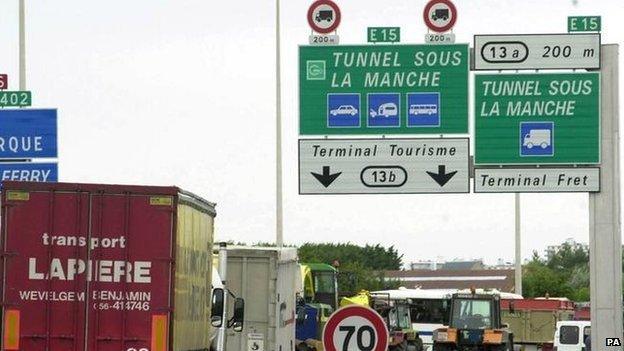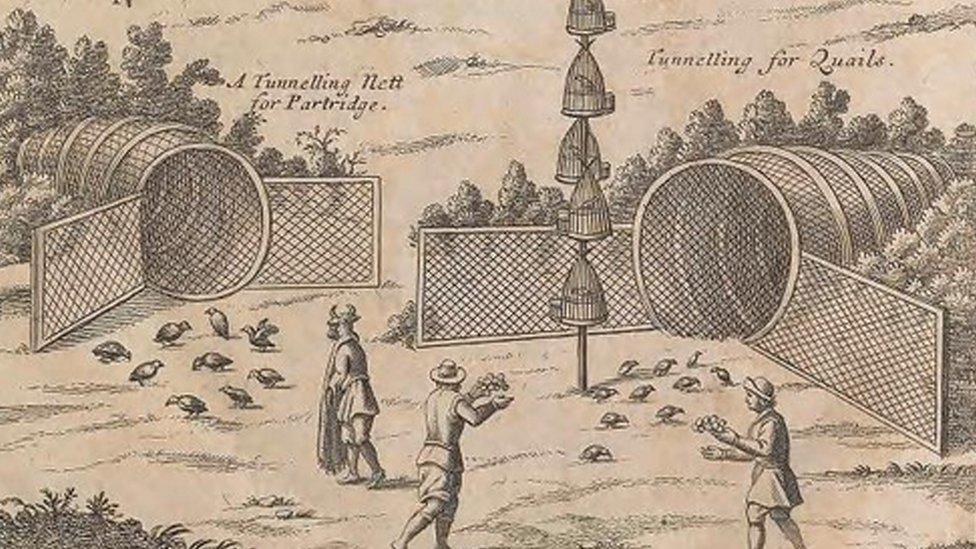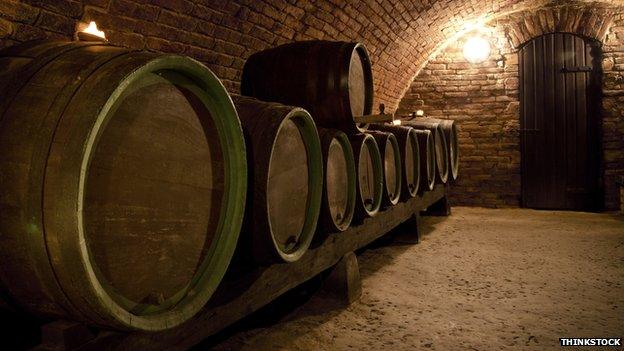How the word 'tunnel' went from France to England and back
- Published

The Channel Tunnel has been the focus of riots and fires in recent weeks. It is noteworthy that the word "tunnel" itself moved from France to England and then back again.
The Oxford English Dictionary gives as its first definition of tunnel, from the 15th Century, "a net for catching partridges".
It is true that it was used to mean the sort of tube-shaped net into which birds can be coaxed. A beautiful engraving from 1678 shows partridges being gently herded into a tunnel by a man wearing a cow-skin.
It was usual for the stalker to pose as a cow or horse (the origin of the phrase "stalking horse") so as to make the birds step away in front of him, rather than fly away as they would from a man.

Fast-food, 17th Century style
Another tunnel net in the same picture is used for quails, lured to it by the calls of other quails in cages.
But there were many other early uses of the word "tunnel" for something tubular, such as a chimney or a funnel. That's not surprising because the word comes from tonneau (formerly tonel) which has meant a barrel in French since at least the 12th Century.
It is a diminutive of the word tunne or tunna used for a barrel and then for one of a particular size, and therefore as a measure of capacity and weight - giving us both ton(ne) and tun in English.

Now since tunnel already meant a tube it was no great leap, as Britain built its canals and railways, to use it for a tube-shaped passageway though a hill or under a river.
In 1765, a letter in the Manchester Mercury, external described how engineer James Brindley was "driving a large tunnel through the center" of Castle Hill, near where the River Medlock joins his Bridgewater Canal, to enable barges to take coal closer to the centre of the town.
And as French dictionaries acknowledge, in the 19th Century the French took the word back in its English form.
There is always resistance to borrowing foreign words into French and "souterrain" is sometimes used instead, but "tunnel" was preferred by the builders of the St Etienne-Lyons railway as early as the the 1820s, and anyway it is French in origin and actually looks quite French.
The celebrated underground funicular in Istanbul built in 1875 is called "Tünel" mimicking the French pronunciation rather than the English.

The Vocabularist
•'What is radical about a radish?
•'Surveillance' - sinister and very French
•How did 'silo' come to mean something different?
•The Greek roots of the word 'eurosceptic'
•The complicated history of the word 'bribe'
• Select topic "language" to follow the Vocabularist

Subscribe to the BBC News Magazine's email newsletter, external to get articles sent to your inbox.